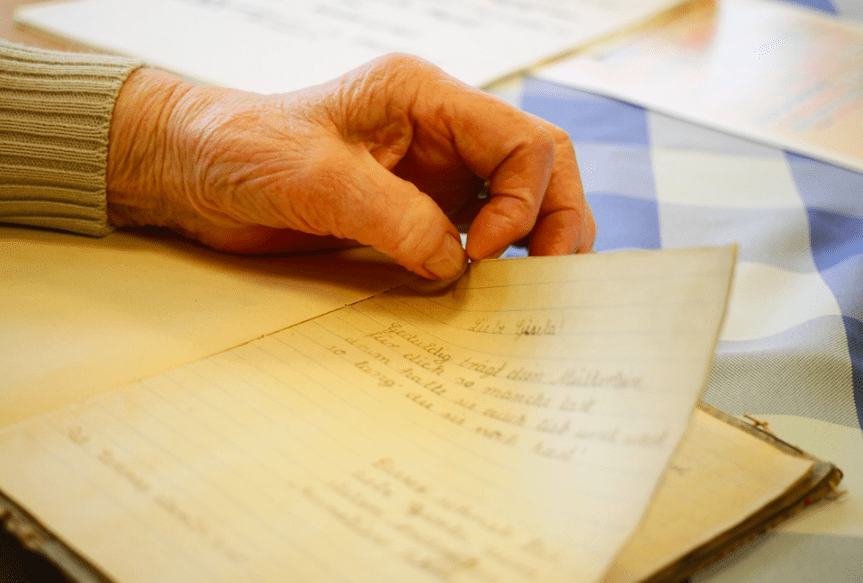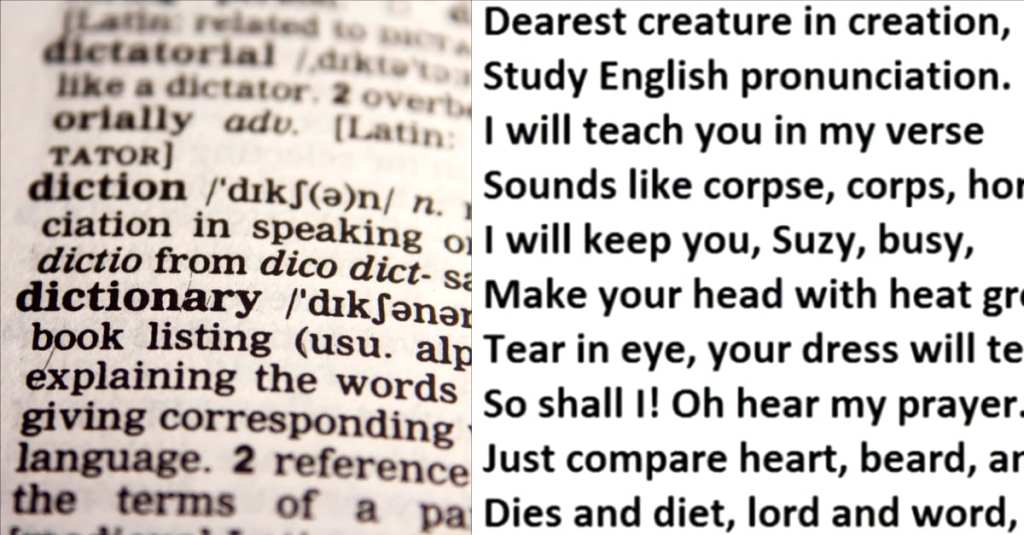Trending Now
English is a super hard language to master – whether it’s your native tongue or a second (or third) language, chances are you still make plenty of mistakes. We don’t remember everything from school, all of the rules and the ways it breaks those rules, and of course, there are regional quirks that make our way not technically correct.
All of that adds up to the reasons this 1920s poem is so difficult to get right. In fact, only the most elite English speakers will nail every last word.

Image Credit: Pixabay
If you think that describes you, well, give it a go! And for the rest of us, we’ll just be playing along for sh*ts and giggles.
The poem is titled The Chaos, written by Dutch writer, traveler, and educator Gerard Nolst Trenite, and as you can see from the first eight lines, we’re not fooling around.
Dearest creature in creation,
Study English pronunciation.
I will teach you in my verse
Sounds like corpse, corps, horse, and worse.
I will keep you, Suzy, busy,
Make your head with heat grow dizzy.
Tear in eye, your dress will tear.
So shall I! Oh hear my prayer.
The poem is obviously meant to drive people crazy – all 146 lines of it.
What’s more? The English Spelling Society published an extended version, featuring 274 lines, in the 1990s.
Trenite, in case you’re wondering, wasn’t a masochist; he was a private tutor who spent his time teaching young wealthy Dutch men to drop their foreign accents when speaking English.

Photo Credit: Photo Credit: Pixabay
The complete version of the poem contains around 800 examples of irregular spelling and pronunciation, though some words are fairly antiquated and not really in use. This will make it harder for modern readers, since some words won’t be familiar at all, but the Society maintains its integrity.
“The selection of examples now appears somewhat dated, as do a few of their pronunciations.
Indeed a few words may even be unknown to today’s readers (how many will know what a ‘studding-sail’ is, or that its nautical pronunciation is ‘stunsail’?) and not every rhyme will immediately ‘click’ (‘grits’ for ‘groats’?) but the overwhelming bulk of the poem represents as valid an indictment of the chaos of English spelling as it ever did.”
If you want to give it a try, pull up the PDF. Read along with the video below to make sure you’re getting it all right, and good luck!
I haven’t tried this yet, but I’m definitely going to (even though I have no expectation that I will get even half of it right!).
If you do it, please share your results. And don’t worry; no judging.






